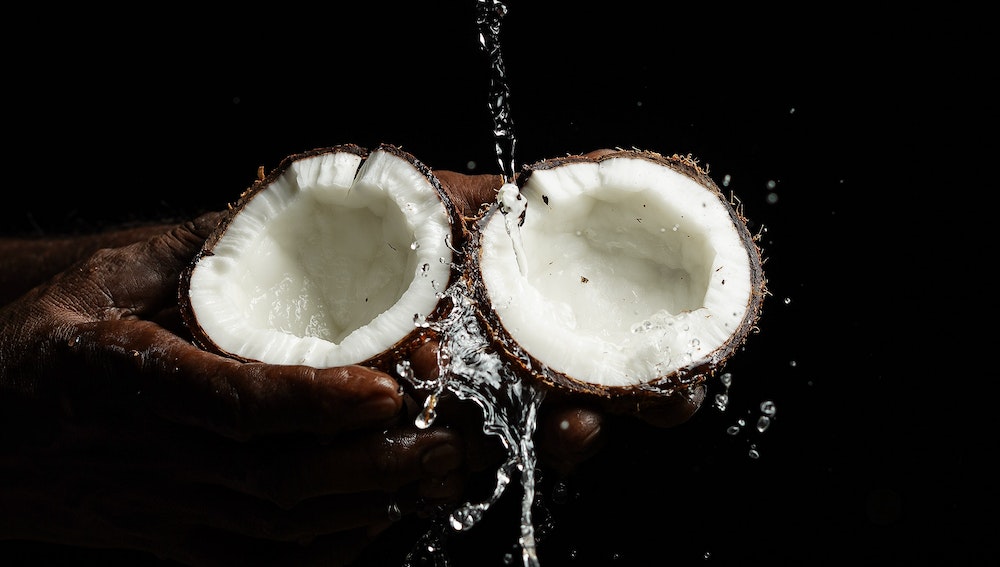When it comes to energy drinks, Red Bull is one of the most popular brands on the market. But what does Red Bull taste like? The answer to this question is not as straightforward as you might think.
Red Bull has a unique taste that is often described as a mix of citrus and herbs. It has a sweet and sour yet slightly bitter taste with a hint of carbonation.
The tangy aspect of Red Bull’s flavor is what sets it apart from other energy drinks. This tanginess is partly due to the presence of guarana, a natural ingredient known for its caffeine content and unique taste.
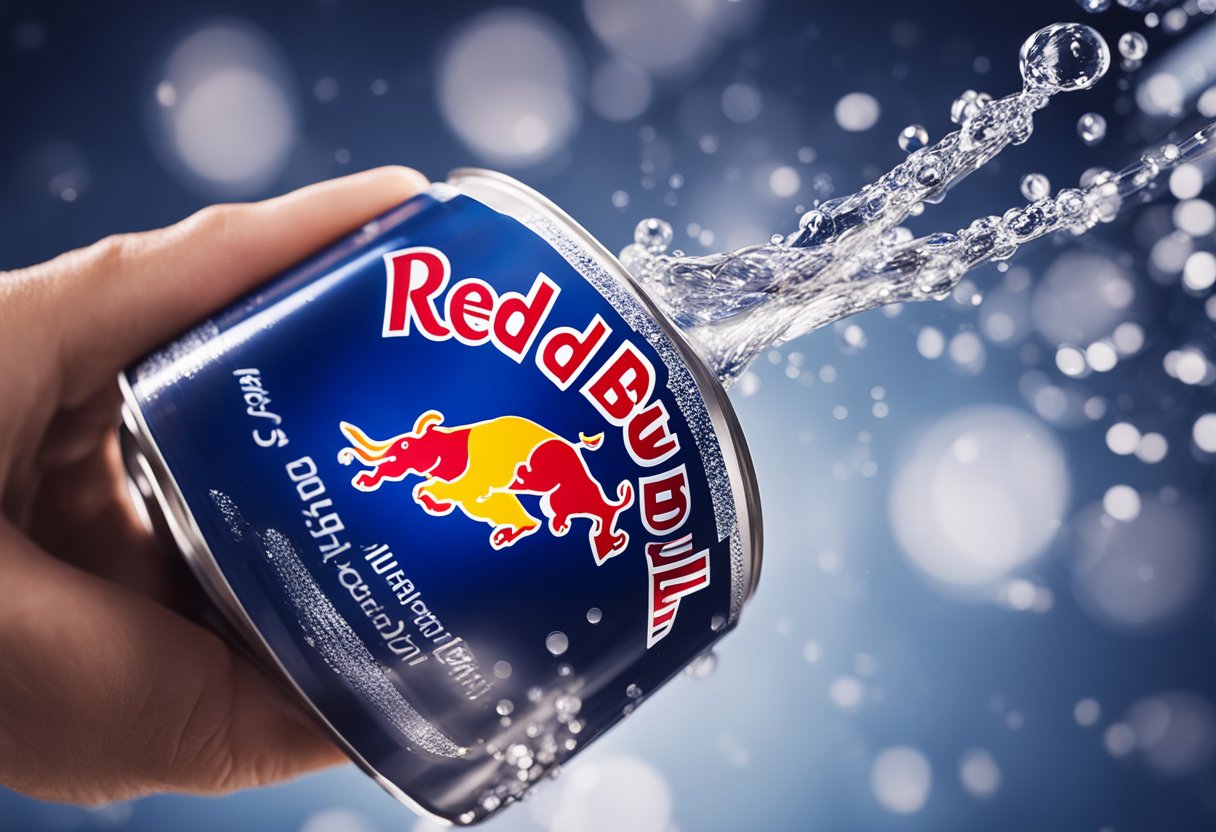
Understanding the taste profile of Red Bull can help you decide if it’s the right energy drink for you. Some people love the taste of Red Bull, while others find it too medicinal or artificial.
Red Bull also comes in a variety of flavors, including tropical, peach, and blueberry. Each flavor has its own unique taste profile, so it’s worth trying different flavors to see which one you prefer.
In this article, I will explore the taste profile of Red Bull in more detail, discuss the different flavors of Red Bull, compare Red Bull with other energy drinks, and examine the nutritional content and health aspects of Red Bull.
I will also provide tips on how to mix Red Bull with other beverages and discuss the texture of Red Bull. Finally, I will answer some frequently asked questions about Red Bull.
Key Takeaways
- Red Bull has a unique taste that is often described as a mix of citrus and herbs with a tart aftertaste and a smell that is often compared to apples or lemons.
- Red Bull comes in a variety of flavors, each with its own unique taste profile.
- While Red Bull can provide a quick energy boost, it’s important to be mindful of its nutritional content and potential health risks.
Understanding Red Bull
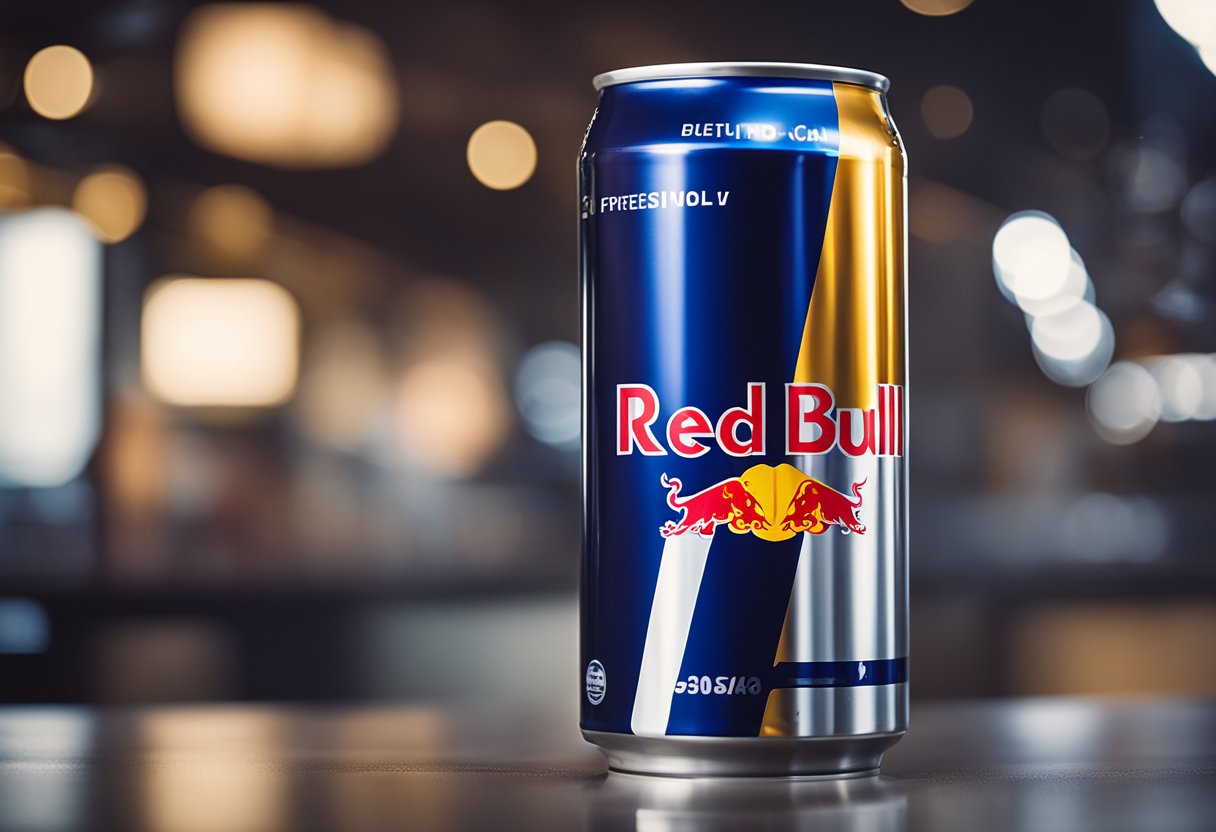
As someone who has tasted Red Bull before, I can confidently say that it has a unique taste that is not easy to describe. Red Bull is an energy drink that is carbonated and has a slightly bitter taste with a hint of sweetness. The drink has a tart aftertaste that lingers in your mouth long after you have taken a sip.
Red Bull is the most popular energy drink in the world and is known for its slogan “Red Bull gives you wings.” The drink was first introduced in Austria in 1987 and has since become a global phenomenon. Red Bull is available in over 171 countries and is consumed by millions of people every day.
The original Red Bull has a distinct color that is a mix of orange and yellow. The drink is made up of several ingredients, including caffeine, taurine, and sugar.
Taurine is an amino acid that is found in meat and fish and is believed to help improve athletic performance. The caffeine in Red Bull is responsible for the energy boost that people feel after drinking it.
Red Bull is a popular drink among young adults and is often consumed at parties and social events. The drink is also used as a mixer in alcoholic beverages.
Despite its popularity, Red Bull has been the subject of controversy over the years due to its high sugar content and potential health risks associated with consuming energy drinks.
Overall, Red Bull has a unique taste that is hard to describe. It is a carbonated energy drink that has a slightly bitter taste with a hint of sweetness. The drink is made up of several ingredients, including caffeine and taurine, and is available in over 171 countries worldwide.
While Red Bull is a popular drink, it is important to consume it in moderation due to potential health risks associated with energy drinks.
The Taste Profile of Red Bull
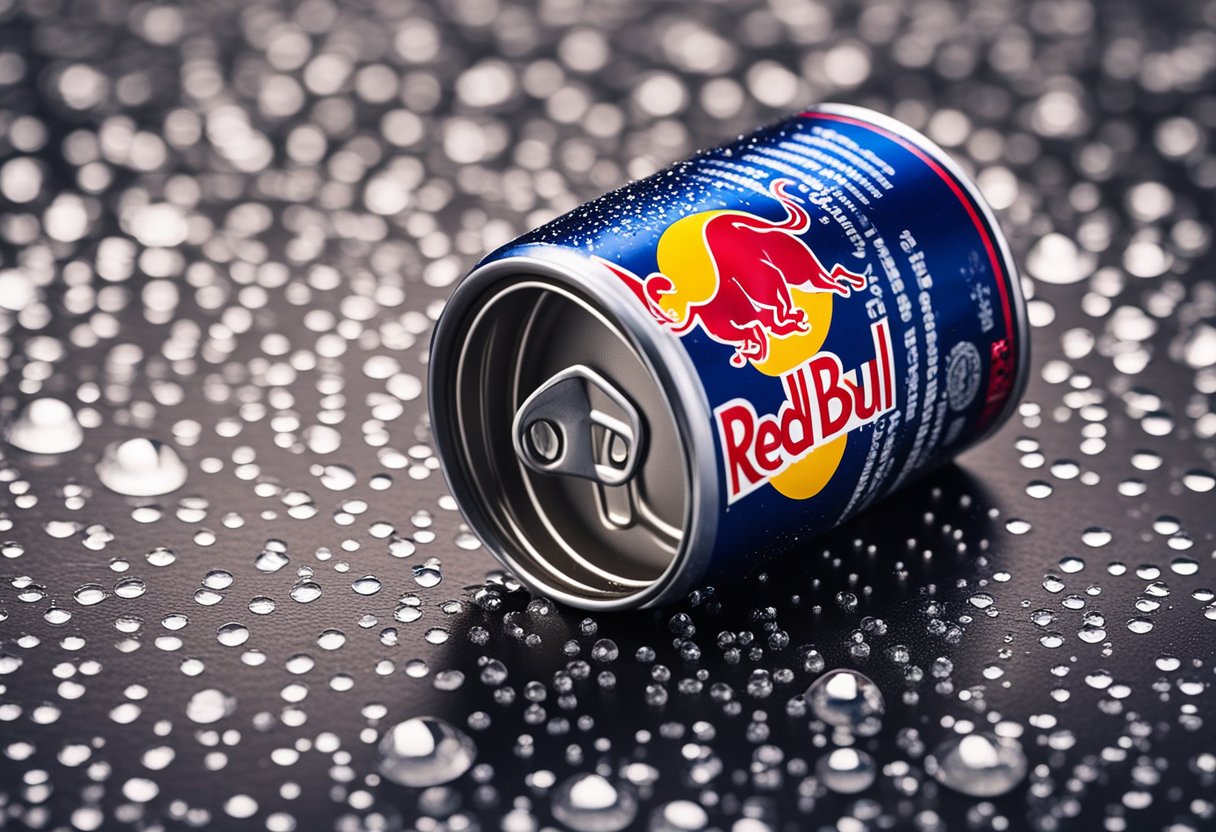
Red Bull is a popular energy drink that is known for its unique taste profile. It has a distinct flavor that can best be described as a combination of sweet, sour, and tangy, with a hint of bitterness. The drink has a candy-like sweetness that is fruity and refreshing.
When you first take a sip of Red Bull, you will notice the sweet and fruity taste. The drink has a light carbonation, which adds to its refreshing taste.
As you continue to drink it, you will start to notice the sour and tangy notes. These flavors are what make Red Bull stand out from other energy drinks on the market.
One of the most interesting things about Red Bull’s taste profile is its aftertaste. The drink leaves a slightly bitter aftertaste that lingers in your mouth. This aftertaste is what some people love about Red Bull, while others find it unappealing.
Overall, Red Bull has a unique taste that is unlike any other energy drink on the market. It has a candy-like sweetness that is fruity and refreshing, with a sour and tangy kick. The drink leaves a slightly bitter aftertaste that is either loved or hated by its fans.
Different Flavors of Red Bull
https://www.youtube.com/watch?v=MUCv6xJoAJ0
Red Bull is known for its distinct taste, which is sweet, sour, and slightly bitter with a hint of carbonation. However, the brand has also introduced various flavors to cater to different taste preferences. In this section, I will describe some of the different flavors of Red Bull and how they taste.
Original Red Bull Flavor
The original Red Bull flavor is the classic flavor that started it all. It has a sweet and tangy taste with a slightly bitter aftertaste. The carbonation is moderate, making it easy to drink. Some people describe it as having a fruity taste, while others say it has a medicinal flavor.
Red Bull Blue Edition
The Red Bull Blue Edition has a blueberry flavor that is both sweet and tangy. It has a moderate carbonation level and is easy to drink. The blueberry flavor is not overpowering, and it blends well with the original Red Bull flavor.
Red Bull Peach Edition
The Red Bull Peach Edition has a peach flavor that is sweet and refreshing. It has a moderate carbonation level, making it easy to drink. The peach flavor is not overpowering, and it blends well with the original Red Bull flavor.
Red Bull Cranberry Edition
The Red Bull Cranberry Edition has a tart and slightly sweet flavor. It is less sweet than the original Red Bull flavor, and the carbonation is moderate. The cranberry flavor is not overpowering, and it blends well with the original Red Bull flavor.
Red Bull Orange Edition
The Red Bull Orange Edition has a sweet and tangy orange flavor. It has a moderate carbonation level and is easy to drink. The orange flavor is not overpowering, and it blends well with the original Red Bull flavor.
Red Bull Citrus Edition
The Red Bull Citrus Edition has a citrus flavor that is both sweet and tart. It has a moderate carbonation level, making it easy to drink. The citrus flavor is not overpowering, and it blends well with the original Red Bull flavor.
Red Bull Coconut Berry Edition
The Red Bull Coconut Berry Edition has a sweet and fruity flavor with a hint of coconut. It has a moderate carbonation level, making it easy to drink. The coconut flavor is not overpowering, and it blends well with the berry flavor.
Red Bull Watermelon Edition
The Red Bull Watermelon Edition has a sweet and refreshing watermelon flavor. It has a moderate carbonation level, making it easy to drink. The watermelon flavor is not overpowering, and it blends well with the original Red Bull flavor.
Red Bull Tangerine Edition
The Red Bull Tangerine Edition has a sweet and tangy tangerine flavor. It has a moderate carbonation level, making it easy to drink. The tangerine flavor is not overpowering, and it blends well with the original Red Bull flavor.
Overall, Red Bull has a range of flavors that cater to different taste preferences. While the original Red Bull flavor is still the most popular, the brand’s other flavors offer a refreshing twist to the classic energy drink.
Comparing Red Bull with Other Energy Drinks
When it comes to energy drinks, Red Bull is one of the most popular and recognizable brands on the market. But how does it compare to other energy drinks out there? As someone who has tried a variety of energy drinks, I have some insights to share.
Monster
Monster is another well-known energy drink brand that is often compared to Red Bull. While both drinks are carbonated and caffeinated, there are some differences in taste and ingredients. Monster tends to have a sweeter taste than Red Bull, and it also contains more sugar and calories.
Additionally, Monster comes in a wider variety of flavors than Red Bull, which may be a plus for those who like to switch things up.
Soda
While soda isn’t an energy drink, it’s worth mentioning as an alternative to Red Bull. Soda typically contains caffeine and sugar, which can provide a temporary energy boost.
However, soda also tends to have a lot of empty calories and can lead to a crash after the initial sugar rush wears off. In terms of taste, soda can vary widely depending on the brand and flavor, but it generally has a sweeter taste than Red Bull.
Other Energy Drinks
There are countless other energy drink brands out there, each with their own unique taste and ingredients. Some popular brands include Rockstar, Monster, and Bang. While I haven’t tried every energy drink out there, I’ve found that many of them have a similar taste and effect to Red Bull.
However, it’s important to note that not all energy drinks are created equal, and some may contain more sugar, caffeine, or other additives than others.
Overall, when it comes to taste, Red Bull has a distinct flavor that sets it apart from other energy drinks. However, taste is subjective, and what one person likes may not be the same as someone else.
When choosing an energy drink, it’s important to consider factors like ingredients, sugar content, and caffeine levels, as well as personal taste preferences.
Nutritional Content of Red Bull
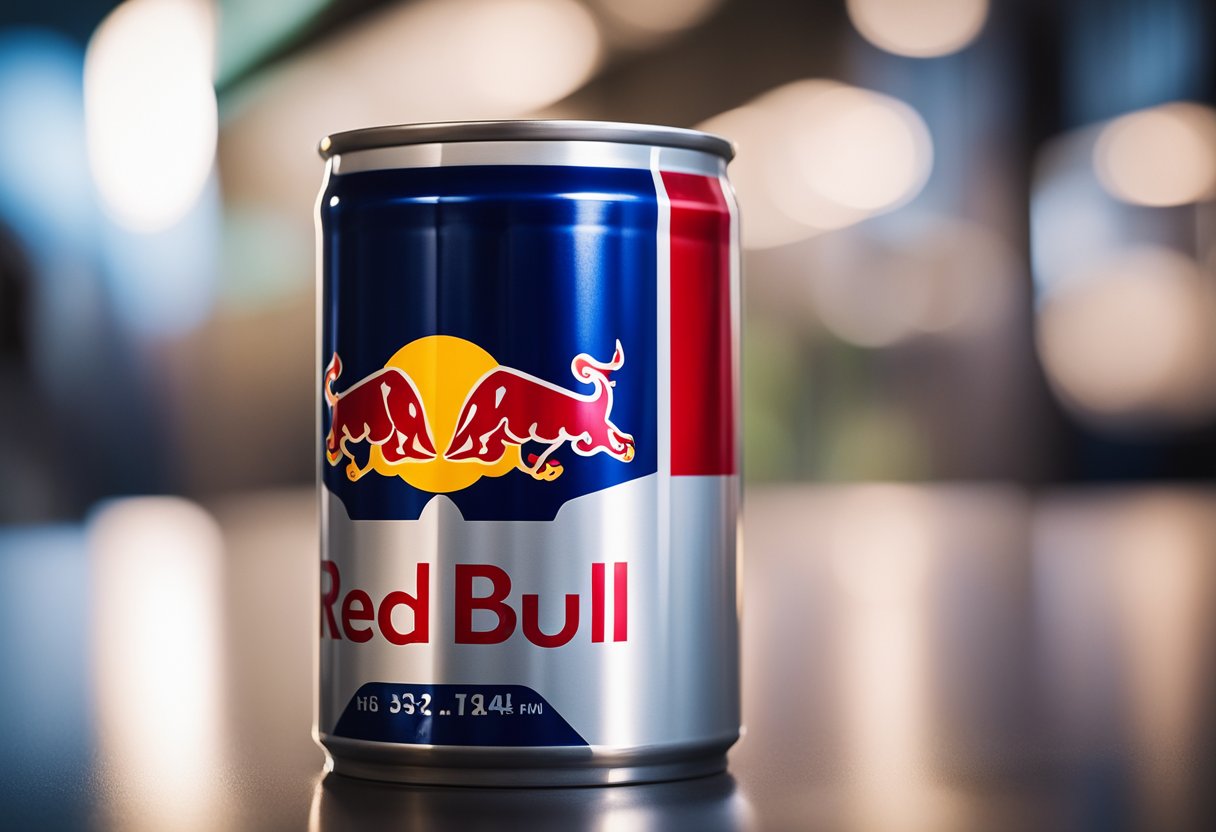
As a popular energy drink, Red Bull has gained a reputation for providing an energy boost to those who consume it. But what about its nutritional content? Let’s take a closer look.
Calories and Sugar Content
A standard 8.4 fl. oz can of Red Bull contains 110 calories and 27 g of sugar. This amount of sugar is equivalent to about 7 teaspoons. While this may seem like a lot, it’s important to keep in mind that Red Bull is intended to be consumed in moderation.
For those who are looking to reduce their sugar intake, Red Bull also offers a sugar-free option. Red Bull Zero and Red Bull Sugarfree both contain zero sugar and only 5 calories per 8.4 fl. oz can.
Caffeine Content
Red Bull contains 80 mg of caffeine per 8.4 fl. oz can. This amount of caffeine is roughly equivalent to a cup of coffee. While caffeine can provide an energy boost, it’s important to consume it in moderation to avoid negative side effects such as jitters and insomnia.
B Vitamins
Red Bull also contains a variety of B vitamins, including B3 (niacin), B6, and B12. These vitamins play important roles in energy metabolism and can help support overall health.
Glucose
In addition to sugar, Red Bull also contains glucose. Glucose is a type of sugar that is quickly absorbed by the body and can provide a quick source of energy.
Nutrition Facts
Here is a breakdown of the nutrition facts for a standard 8.4 fl. oz can of Red Bull:
| Nutrient | Amount |
|---|---|
| Calories | 110 |
| Total Fat | 0 g |
| Sodium | 105 mg |
| Total Carbohydrates | 28 g |
| Sugars | 27 g |
| Protein | 0 g |
| Caffeine | 80 mg |
| Vitamin B3 (Niacin) | 22 mg |
| Vitamin B6 | 2.8 mg |
| Vitamin B12 | 2.5 mcg |
Overall, Red Bull can provide a quick energy boost thanks to its sugar, caffeine, and glucose content. However, it’s important to consume it in moderation and be mindful of its sugar and calorie content. For those looking to reduce their sugar intake, the sugar-free options may be a better choice.
Health Aspects of Red Bull
As someone who has tried Red Bull, I am curious about its health aspects. While Red Bull is marketed as an energy drink that can improve physical and cognitive performance, it is important to understand its potential health effects.
One of the main ingredients in Red Bull is caffeine, which is known for its ability to enhance alertness, focus, and cognitive function.
However, too much caffeine can lead to negative side effects such as insomnia, anxiety, and restlessness. It is recommended to limit caffeine intake to no more than 400 milligrams per day, which is about four cups of coffee.
Another ingredient in Red Bull is taurine, an amino acid that is found naturally in the human body and in some foods such as meat and fish.
While taurine is generally considered safe, its effects on the body are not well understood. Some studies suggest that taurine may improve athletic performance, but more research is needed to confirm these findings.
Red Bull also contains sugar, which can contribute to weight gain and other health issues when consumed in excess. The sugar-free version of Red Bull is a better option for those who want to avoid added sugars.
It is important to note that Red Bull should not be mixed with alcohol. Combining energy drinks with alcohol can lead to dangerous side effects such as heart palpitations, high blood pressure, and impaired judgment.
Overall, Red Bull can be consumed in moderation as part of a healthy diet and active lifestyle. However, it is important to be mindful of its caffeine and sugar content and to avoid mixing it with alcohol.
Red Bull as a Mixer
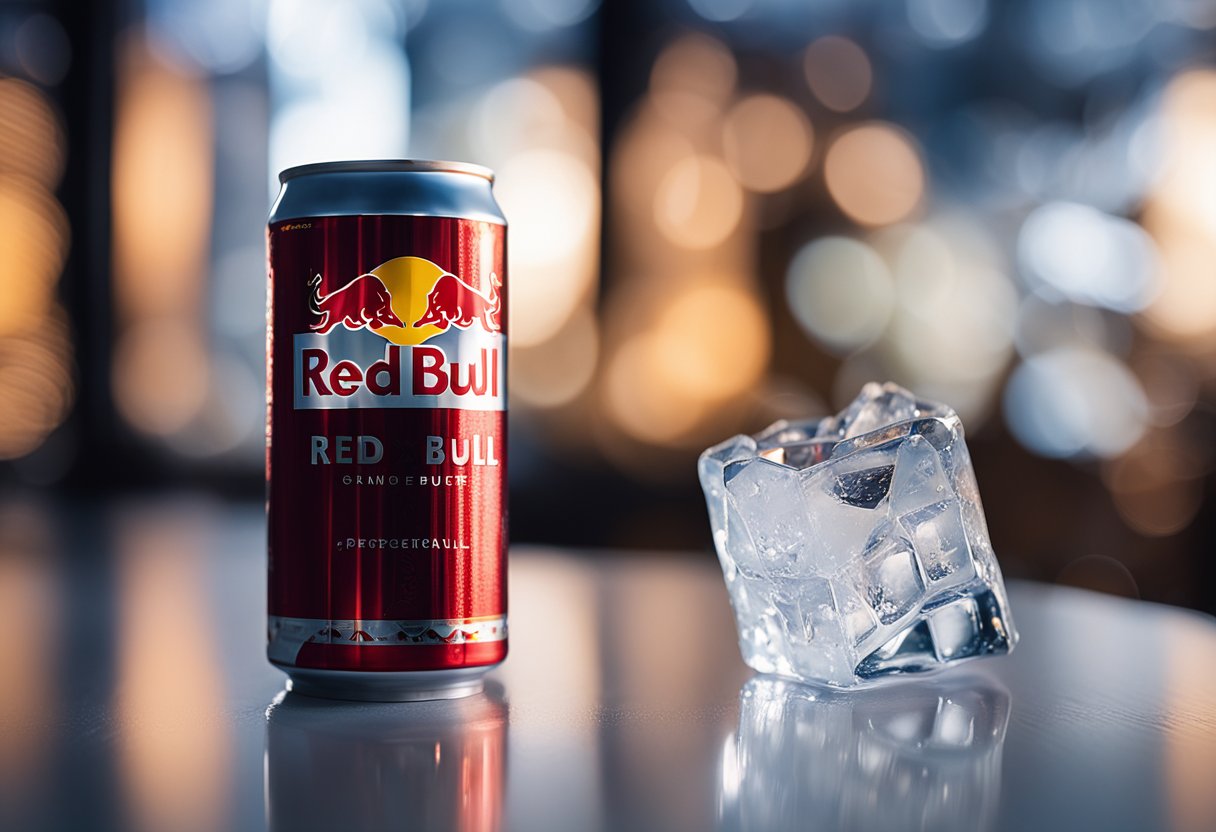
As an avid Red Bull drinker, I have experimented with using the energy drink as a mixer in various alcoholic and non-alcoholic beverages. Here are some of my experiences and recommendations:
Coffee
Red Bull and coffee might seem like a strange combination, but it actually works surprisingly well. The sweetness of Red Bull complements the bitterness of coffee, creating a unique and energizing flavor.
I recommend adding a small amount of Red Bull to your coffee, especially if you need an extra boost in the morning.
Tea
While Red Bull and tea might not be the most common pairing, it can be a refreshing and tasty combination. I recommend using a fruity tea, such as peach or raspberry, and adding a splash of Red Bull for a sweet and tangy flavor.
Beer
Red Bull and beer is a popular combination among college students and party-goers, but it is not a recommended mix. The caffeine in Red Bull can mask the effects of alcohol, leading to overconsumption and dangerous situations. It is best to avoid mixing Red Bull with alcohol altogether.
Mixer
Red Bull is a popular mixer for cocktails and mixed drinks. Its sweet and tangy flavor pairs well with a variety of liquors, including vodka, rum, and tequila.
Some popular Red Bull cocktails include the Jägerbomb, which combines Red Bull and Jägermeister, and the Vodka Red Bull, which combines Red Bull and vodka. However, it is important to drink responsibly and in moderation when consuming Red Bull as a mixer.
Overall, Red Bull can be a versatile and tasty mixer for a variety of beverages. Just remember to drink responsibly and in moderation, especially when mixing with alcohol.
Understanding the Texture of Red Bull
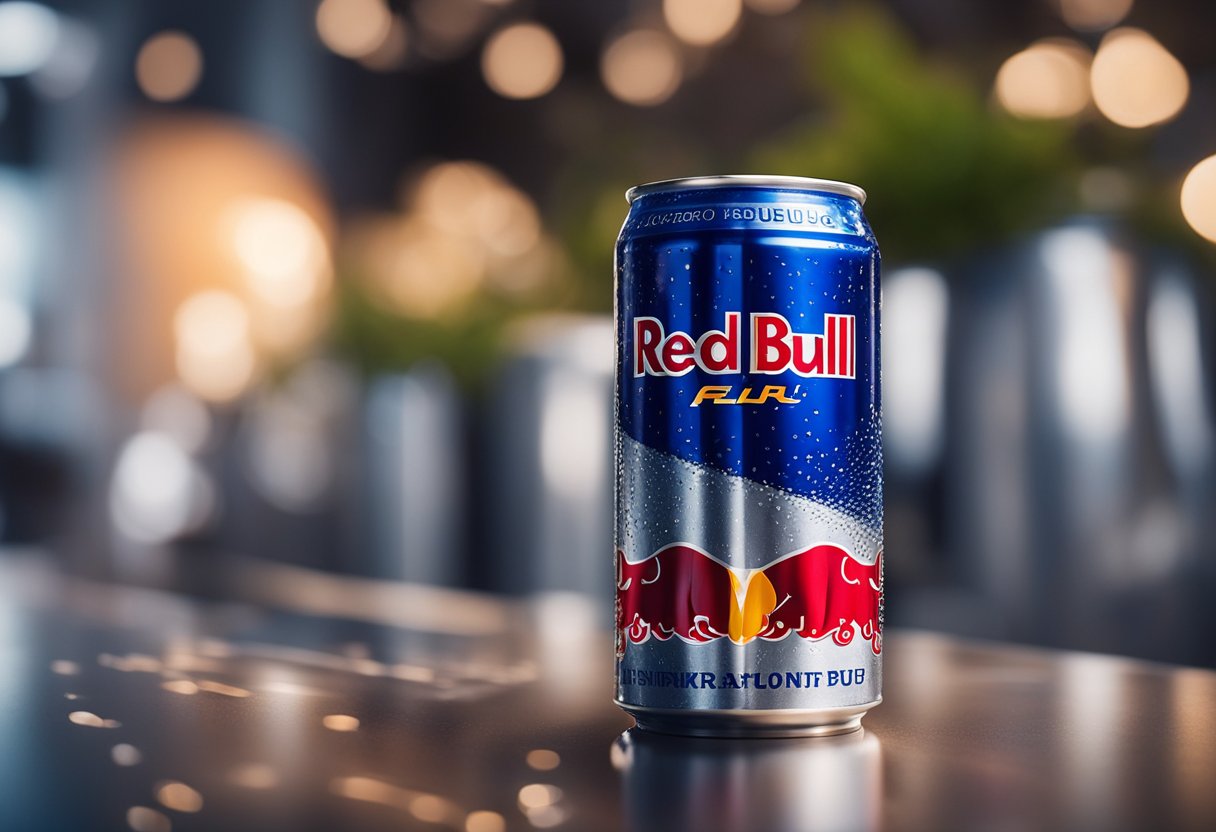
As someone who has tasted Red Bull, I can confidently say that it has a unique texture that sets it apart from other energy drinks. The texture of Red Bull can be described as smooth and slightly syrupy, with a moderate level of carbonation.
The carbonation in Red Bull comes from the carbonated water used in the drink’s formulation. This carbonation adds a slight fizziness to the drink, which can be felt on the tongue.
However, the level of carbonation in Red Bull is not as high as in some other carbonated drinks, such as soda.
In terms of texture, Red Bull has a thicker consistency than many other energy drinks. This is due to the inclusion of various ingredients, such as sugar, taurine, and B vitamins, which give the drink its signature taste and texture. The sugar in Red Bull also contributes to its slightly syrupy texture.
Overall, the texture of Red Bull is smooth, slightly syrupy, and moderately carbonated. It is important to note that the texture of Red Bull may vary slightly depending on the specific flavor or variant of the drink. However, the general characteristics of Red Bull’s texture are consistent across all varieties.
Artificial Elements in Red Bull
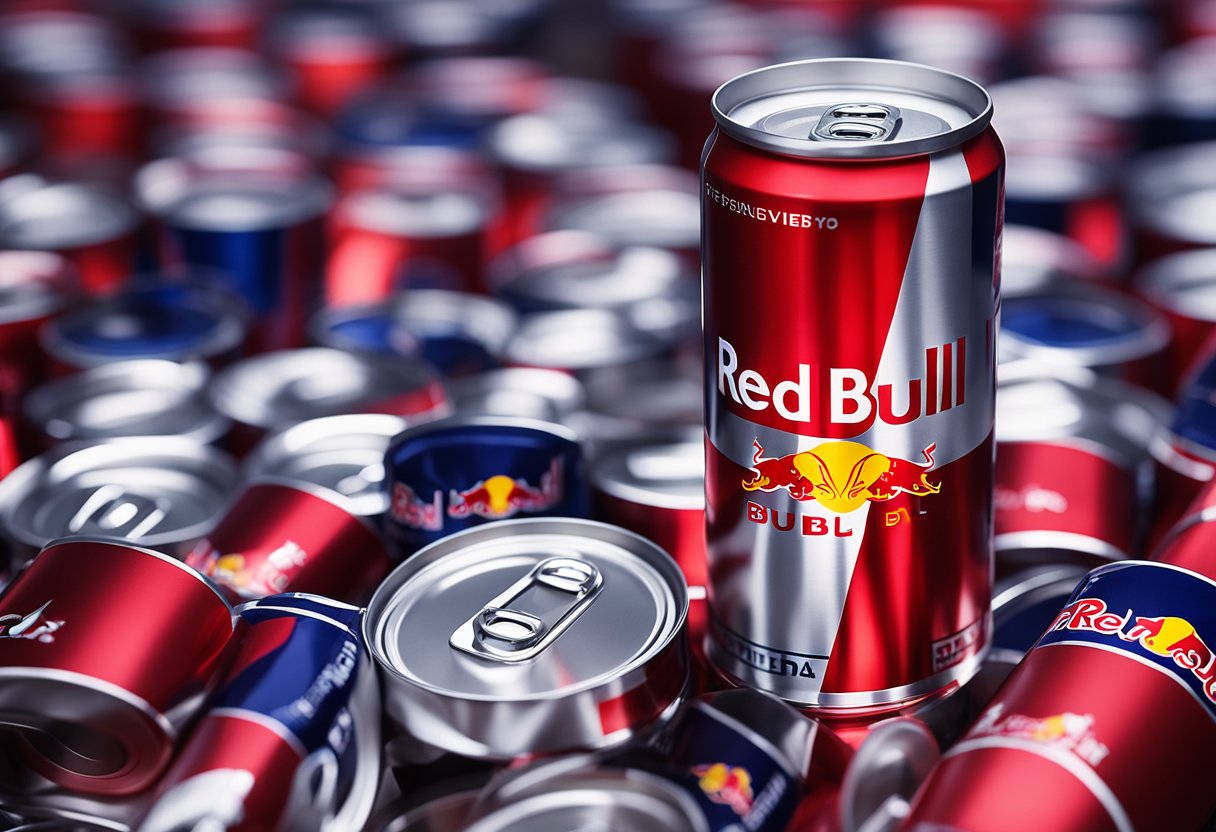
As I explored earlier, Red Bull has a unique taste that is often described as a mix of citrus and herbs. However, the taste of Red Bull is not solely derived from natural ingredients. In fact, Red Bull contains several artificial elements that contribute to its distinct flavor profile.
One of the most prominent artificial ingredients in Red Bull is citric acid. Citric acid is a common food additive used to add a sour taste to products. In Red Bull, citric acid helps to balance out the sweetness of the drink and gives it a tangy flavor.
Another artificial ingredient found in Red Bull is sucrose. Sucrose is a type of sugar that is commonly used in food and beverage products. In Red Bull, sucrose is used to provide a sweet taste to the drink.
Glucuronolactone is another artificial element found in Red Bull. It is a naturally occurring substance that is also produced synthetically for use in food and beverage products. In Red Bull, glucuronolactone is used to provide a slight bitter taste to the drink.
It is important to note that while these artificial elements are used in Red Bull, they are all approved by the FDA for use in food and beverage products. However, some people may be sensitive to these ingredients and may experience adverse reactions.
Overall, the artificial elements in Red Bull contribute to its unique taste profile. While some people may enjoy the taste of Red Bull, others may find it unappealing due to the use of artificial ingredients.
The Energy Boost from Red Bull
I have always found Red Bull to be a reliable source of quick energy. It contains caffeine, taurine, and B-vitamins that can give me a boost when I need it the most. The caffeine in Red Bull can stimulate the central nervous system, which can help me feel more alert and focused.
I have found that drinking a can of Red Bull before a workout or sports activity can help me perform better. The quick boost of energy can help me push through fatigue and stay focused on my goals.
However, I should note that Red Bull should not be used as a replacement for proper hydration and nutrition.
It is also important to note that Red Bull should be consumed in moderation. While it can provide a quick energy boost, consuming too much caffeine can lead to negative side effects such as jitters, anxiety, and difficulty sleeping. It is recommended to limit caffeine intake to no more than 400mg per day.
Overall, I find Red Bull to be a reliable source of quick energy that can help me perform better in sports and other activities. However, it is important to consume it in moderation and not rely on it as a replacement for proper hydration and nutrition.
Frequently Asked Questions
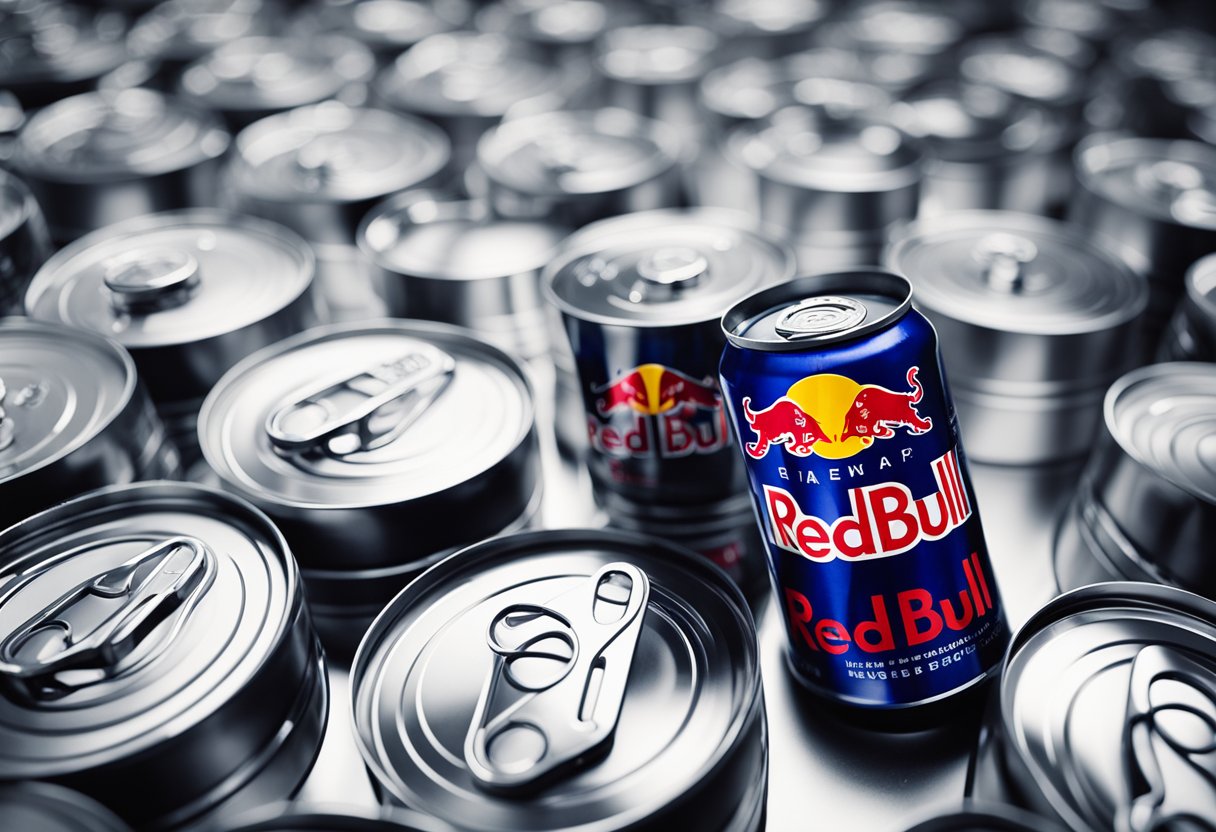
Does Red Bull taste like alcohol?
No, Red Bull does not taste like alcohol. It has a unique taste that is often described as a mix of citrus and herbs with a sweet and sour yet slightly bitter taste and a hint of carbonation. It has a tart aftertaste and a smell that is often compared to apples or lemons.
What does Red Bull do?
Red Bull is an energy drink that contains caffeine, taurine, B vitamins, and sugar. It is designed to give you a quick burst of energy and help you stay alert and focused. It can also improve physical performance and reduce mental fatigue.
What does Red Bull look like?
Red Bull is a carbonated drink that comes in a slim, silver and blue can. The can has a red and yellow logo with two bulls charging at each other.
What does Monster taste like?
Monster is another popular energy drink that has a different taste than Red Bull. It has a sweeter taste and comes in a variety of flavors such as original, ultra, and zero. Some people describe the taste as fruity, while others find it too sweet.
What does sugar-free Red Bull taste like?
Sugar-free Red Bull has a similar taste to the original Red Bull, but with less sweetness. It has a slightly bitter taste and a tart aftertaste. Some people prefer the taste of sugar-free Red Bull because it is less sweet.
Should I drink 2 Red Bulls?
It is not recommended to drink two Red Bulls in a row, as it can lead to overconsumption of caffeine and other stimulants. Drinking too much caffeine can cause side effects such as jitters, anxiety, and increased heart rate. It is best to consume energy drinks in moderation and follow the recommended serving size.





